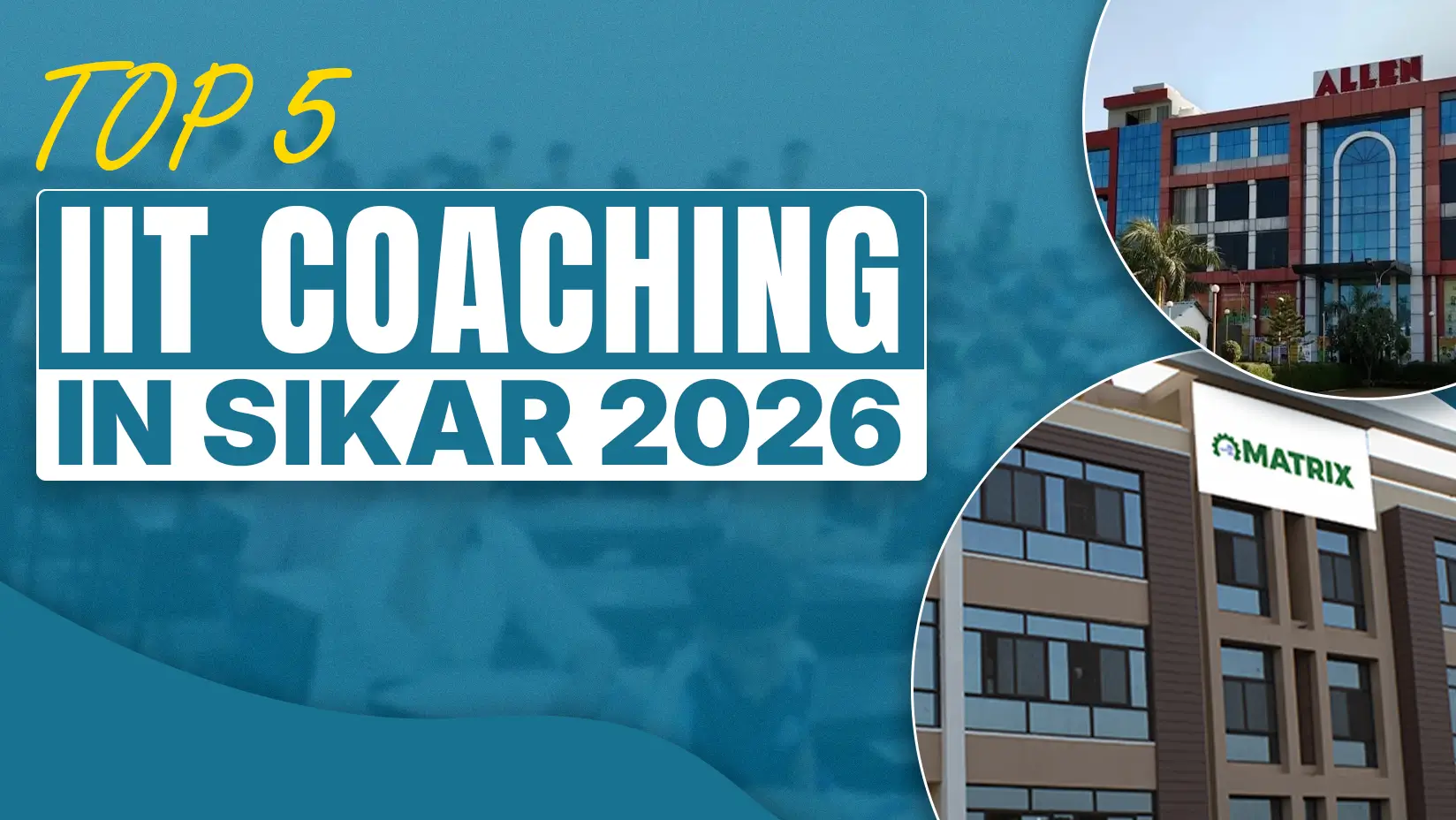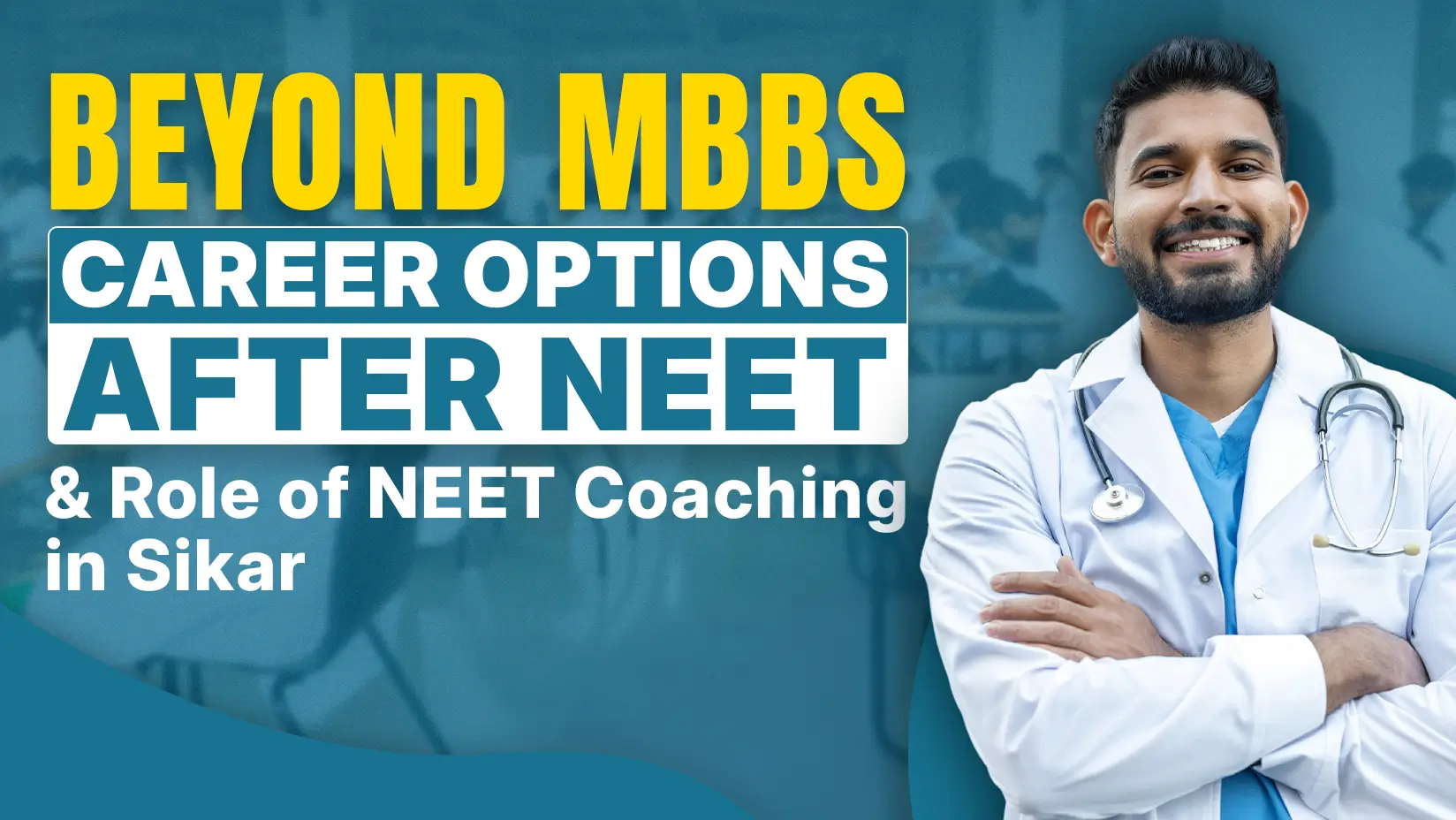JEE is a competitive exam in India for getting into famous institutes like IITs and NITs. Crores of students study every year with full concentration for this exam, in the hope that they will get admission to IITs, NITs, and other top engineering colleges. However, similar to the world in which we live, change is certain in JEE as well. As technology has changed the usual ways of teaching and learning, the trends in educational methodologies, also changed the competitive exam industry requirements, and the competition of the Joint Entrance Examination is set to go through some drastic changes in the coming years. Now, it is a good time to look into the probable future trends in JEE that are most likely to happen in the following years and what does this mean for you as a student?
JEE Coaching in Sikar refers to specialized coaching institutes in Sikar, Rajasthan that prepare students for the Joint Entrance Examination (JEE) Main and Advanced, the gateway to top engineering colleges like the IITs and NITs. Sikar has grown into a competitive coaching hub offering quality classroom teaching, expert faculty, regular test series, and personalized guidance to help aspirants strengthen concepts and improve performance in competitive exams.
Table of Contents
ToggleThe Focus of Application-Based Learning will change
Traditionally, JEE focuses more on theoretical knowledge and problem-solving skills. However, future trends in JEE exams may place more emphasis on real-world applications. For example, instead of just solving a physics problem, students will learn to analyze how the principles of mechanics apply to modern machines or structures.
What it means for you:
- Strengthen your core concepts and learn to apply them in practical scenarios.
- Deepen your understanding by exploring experiments, real-life case studies, and projects.
Use of Artificial Intelligence in Exam Pattern
AI (Artificial Intelligence) is transforming the education sector, and JEE is no different. AI-based question generation can be a part of adaptive testing in JEE and grading systems. Adaptive testing means questions can be tailored based on your performance.
What it means for you:
- Use AI-based tools in your preparation. Online platforms like these that provide personalized learning will help you identify your strengths and weaknesses.
Digital Formats and Future Trends in JEE
There has been a transition from pen-and-paper to computer-based tests (CBTs). The next step could be advanced online formats, such as virtual simulations or augmented reality (AR)-based questions. For example, you can interact with 3D molecular structures instead of static chemistry diagrams.
How to embrace this change:
- Become comfortable with digital tools and platforms.
- Practice solving mock tests on computers
- Learn time management online.
Focus on Interdisciplinary Knowledge
The boundaries between engineering, biology, and data sciences are becoming blurred. JEE can test interdisciplinary knowledge with the rise of fields like bioengineering, AI, and quantum computing.
How it redefines your path:
- Apart from the traditional syllabus, try to understand emerging technologies and their connection with basic sciences.
Rise of Sustainability and Ethical Engineering
The global focus is on sustainability and ethical engineering. Future JEE may incorporate themes such as environmentally friendly solutions or ethical decision-making.
How to adjust to this:
- Keep learning about global challenges like climate change, renewable energy, and sustainable development.
The role of soft skills and Future Trends in JEE
Until now, JEE has focused on technical skills, but critical thinking, creativity, and communication skills can be assessed in the future and this is gonna be a part of future assessment.
What it means for you:
- Develop problem-solving and communication skills.
- Participate in debates, group discussions, and collaborative projects.
AI-Driven Personal Mentoring for Preparation
Imagine if an AI mentor guides you during JEE preparation, gives feedback, and suggests areas for improvement. This reality is still there.
How to embrace this change:
- Use AI-powered apps and websites that make your preparation efficient.
Inclusivity in JEE Exams
Government and educational bodies are trying to make JEE more inclusive. Initiatives like regional language options, unique accommodations, and scholarships for differently-abled students may be available.
What it means for you:
- Stay updated about policy changes
- Use available resources
Reintroduction of Weighting of Board Exams
The board may bring back the weightage of exam marks in JEE eligibility, promoting a balanced evaluation system.
How it redefines your path:
- Focus on your board exams and aim for high scores.
Incorporation of Research-Oriented Questions
Research remains the cornerstone of innovation. Future JEE exams may include research-oriented questions.
What does it mean for you?
- Develop an analytical mindset.
- Higher-order thinking should be practiced to solve questions.
- Understand research methodology.
Shorter Exam Duration with More Precision
JEE can move towards shorter and more precise exams. The focus will be on accuracy and understanding instead of endurance.
How to embrace this change?
- Improve your speed and accuracy.
Global Opportunities for Indian Students
With globalization, the doors of international universities are opening for Indian students.
What does it mean for you?
- Be ready for global opportunities.
- Learning a foreign language or getting exposure to international standards can give you an edge.
Conclusion
The future may seem daunting, but remember that the evolving future trends in JEE come with multiple opportunities. You have to focus on adaptability and creativity along with academic excellence. Start early preparation and embrace change confidently. The skills and knowledge you gain today will be helpful in clearing the JEE exam and will help you build a successful future. Stay connected with Institutes, like Matrix, Kautilya, and Allen to stay ahead of the curve.
See also
Big Changes in JEE: How They Impact Your Preparation Strategy











